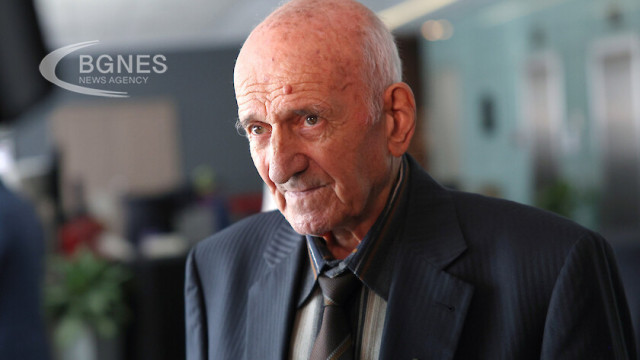At the age of 18, I was sent to "Belene". Before that, I had 6 months of investigation in the State Security (DS) and from there, since they could not find reasons to convict me, I was already sent to the "Belene" camp on Persin Island. And in reality, I turned out to be the youngest concentration camp inmate there.
This was stated in an interview for BGNES by Velichko Velev, a mountaineer from the Rila mountaineer movement and the youngest camper in "Belene", incarcerated at only 18 years old.
Velichko Velev is 90 years old and is one of the few survivors who today can tell about those dark times.
"Before entering the camp, I was engaged in political activity. I participated in the resistance movement. I was directly subordinated to the Rila Mountaineers, and from there I received their instructions on what to do," he said.
In 1951, Velev and his comrades were ready to start an internal revolution in Bulgaria to overthrow the communist government. "We were armed and waiting for the moment. In the spring of 1951, we had to, together with the Sliven highlanders, start an open resistance movement to abolish this power. But we didn't make it. The Sliven highlanders were exposed, attacked, and in this way the general uprising, which was foreseen in 1951, was prevented," he declared.
Velev explained that at that time there were girls' and boys' high schools, and in almost every male high school he had a prepared group of two or three people who acted locally with their classmates - either through agitation or with materials, bulletins and etc., running during unauthorized time in the high school, on the premises, to distribute these newsletters in the students' rooms.
"But later we were exposed by a provocateur, who turned out to be a person close to one of the group, and through him became acquainted and turned out to be an associate of State Security. We were discovered, and so it began already 6 months of investigation, torture, beatings, so that someone would admit something, especially who was behind us, who else were in the group, apart from the ones we were - three people with whom the provocateur was familiar, and then we further restricted him from penetrating our group, and in this way they could not get to the truth," Velev said.
He was sent to the Belene camp in April 1951, where the investigation continued. "Almost every Sunday, an investigator from Sofia came to continue our investigation. Even during the investigation, I was shot twice," emphasized the surviving camper.
When asked what thoughts were going through his mind while he was in the Belene camp, Velev answered: "What thoughts were going through my mind... They threw me an absolute, literal corpse there. I was waiting to die at any moment. There I was, as you must have seen in the movies about the Jews in the concentration camps, skin and bones and two eyes that glow.'
He was released in August 1953, but was immediately mobilized to the barracks for two years. "After I got home I started my free life. But persecuted, with no opportunity to get a job, no opportunity to finish my education. I encountered difficulties while forming my secondary education. For higher education they did not give me access at all. Personally, when I had to enroll in a university, we went to the minister and he said to my eyes - "we don't aim to provide education for people like you", noted Velev.
In response, he states, “You are very wrong. I can stay without a qualification, however, I will not stay without an education."
According to Velev, our civic memory often betrays us, and therefore we must from time to time remember what was, as well as introduce the young generation to the true reality, so that they know the past, how people lived then, under what conditions.
"I feel guilty that we could not get rid of this communist dictatorship. We just acted very Christianly after 1989 and that's why they are in power today and they continue to feel much prouder, much braver than we do," concluded the camp survivor. /BGNES



.jpeg)



